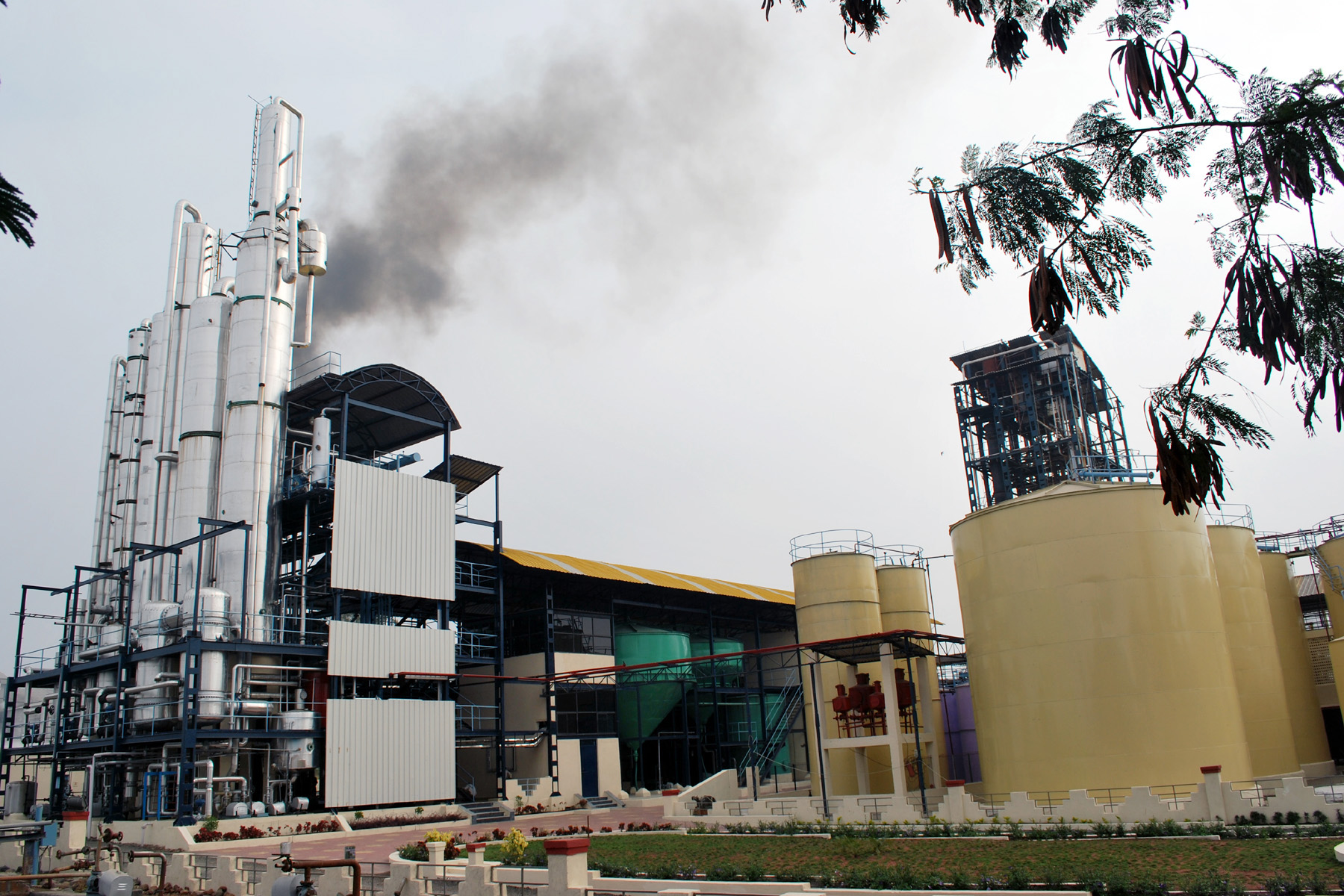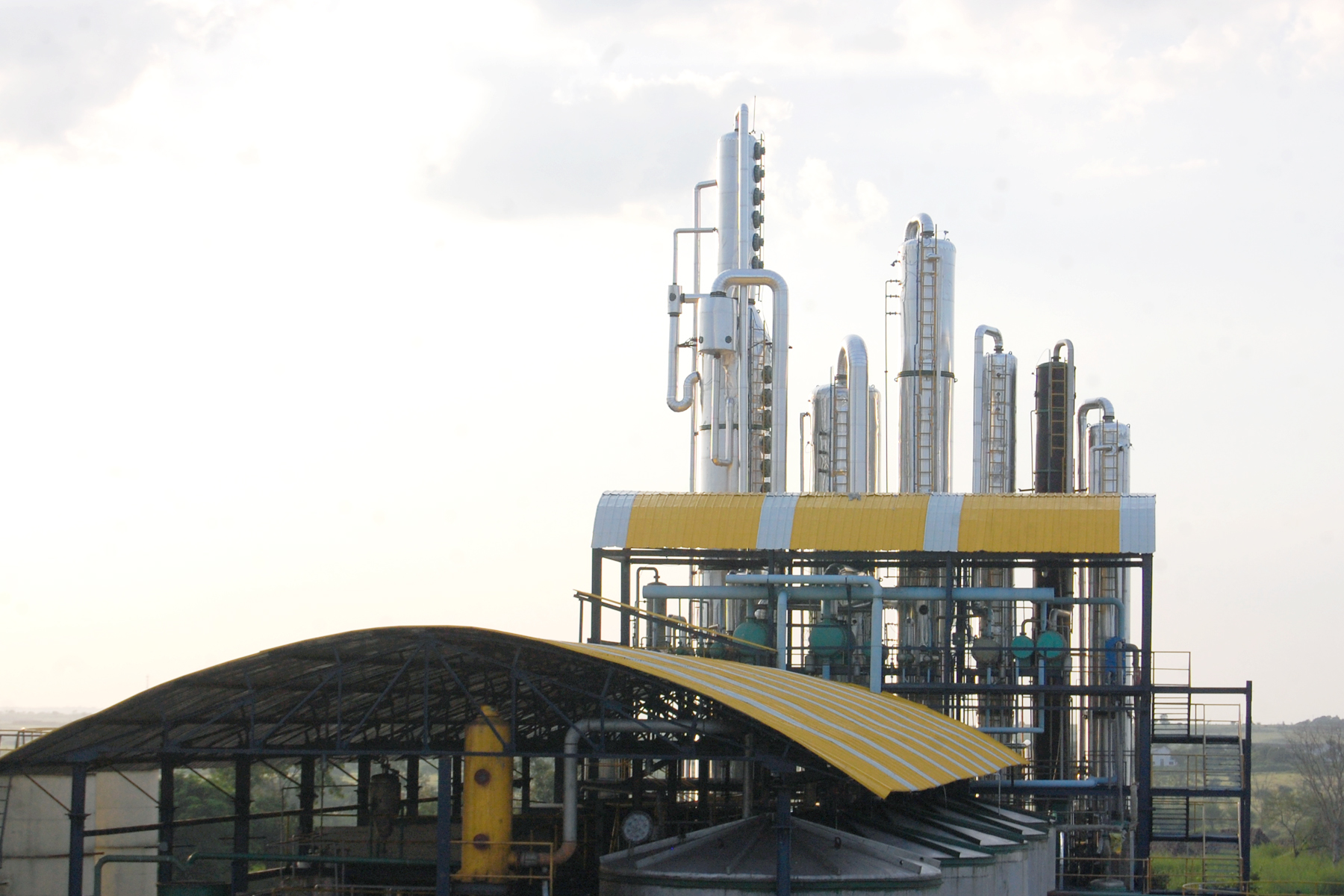Ethanol
We Introduce 2 Bed & 3 Bed For dehydration plant.
UFIs Molecular Sieve Technology Maximize Profitability Via :
- Very good adsorption Kinetics
- Low co- adsorption of ethanol
- High attrition resistance of the beads
Phenomena behind Technology :
- The water molecule ( H2o) having size 3 A is easily getting adsorbed in the cavities present in the molecular sieves, Where as the ethanol (C2H5OH) molecule being larger in size than water cannot enter the cavities present in the molecular sieve
- These crystals have a three-dimensional structure, with pores of precisely defined diameters. They are designed to allow smaller molecules such as water, CO2, and H2S to be adsorbed while excluding larger molecules.
Advantage of the UFIs Molecular Sieve Technology :
- Low energy consumption, Low capital cost as compared to Azeotropic distillation
- Minimum labor requirement , Lowest Processing Costs
- Stable operation
- Near Theoretical Recovery
- Steam consumption minimized by multi stage preheating
- Advanced control system, to provide sustained, stable automatic operation
KEY FEATURES OF UFIs RENEWABLE TECHNOLOGIES :
MOLECULAR SIEVE TECHNOLOGY:
- Ethanol dehydration typically occurs in the PSA unit. Water is absorbed in to the molecular sieve from the ethanol product and then it must be removed to make the sieve available for reuse. By lowering the pressure in the vessel water in released and the sieve is regenerated.
Zeolite Adsorption:
- The Zeolite is the active component of molecular sieve. Manipulation of the Zeolite during manufacturing is the key to precise performance.
- Porosity plays a critical role in adsorption and desorption rates. The ethanol-water mixture must pass through the binder and Zeolite particles, into the Zeolite crystal and ultimately into the Zeolite cage, where separation occurs
Low co-adsorption:- Selective Dehydration Reduces Processing Costs
Selective adsorption is the process of capturing target compounds, and it is a key design parameter for Molecular Sieve Technology. Commercial applications support a higher water adsorption rate and lower ethanol co-adsorption for molecular sieve compared to competitor materials / Processes
High Attrition Resistance Technology - The Key to Longer Bed Life
Attrition is a measure of dust generated from bead on bead contact, which is the source of dust in ethanol units. Lower dust generation leads to longer life of the molecular sieve bed.



